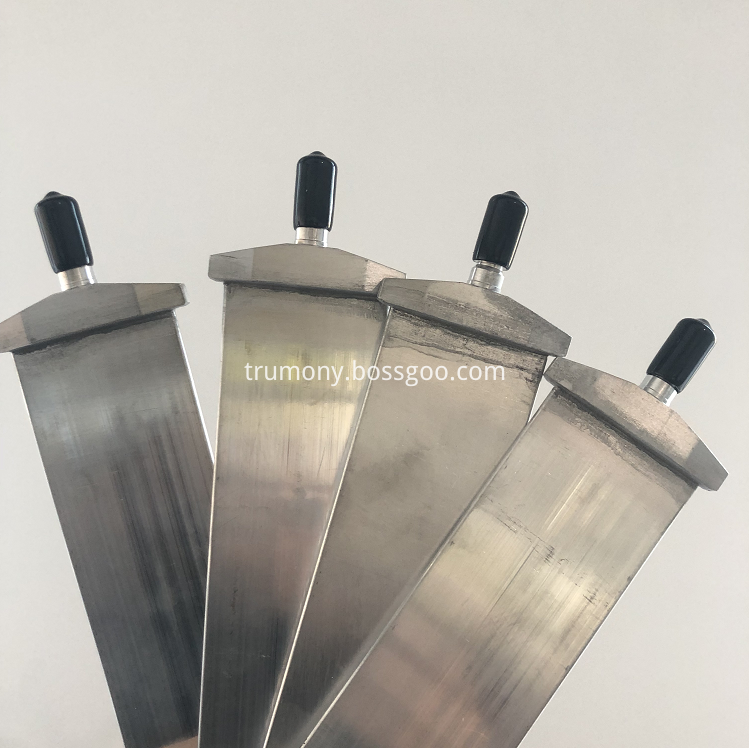
BASF and nine partners jointly launched the third round of “1+3†corporate social responsibility projects to promote the sustainable development of the chemical industry value chain. At the launching ceremony and executive forum of the day, stakeholders including project partners, government representatives, media, academics, and non-governmental organizations (NGOs) held two special discussions and public dialogues. Investigate how to create a sustainable, transparent, and responsible value chain in the chemical industry and related industries.
In 2006, BASF initiated and initiated the “1+3†project based on the platform of the China Business Council for Sustainable Development (CBCSD). According to the concept of “1+3†project, each company drives three major business partners in its supply chain, one CBCSD member company (such as BASF) + three kinds of cooperative companies in its supply chain – suppliers + The ideal model for customers + logistics service providers, most of which are SMEs, sharing best practices in environmental, health and safety (EHS) and other corporate social responsibility areas to promote sustainable development.
“The '1+3' corporate social responsibility project model is an innovative model of supply chain communication, which is both highly operational and derivative, and it also applies to cross-industry and cross-border promotion. In China with many small and medium-sized enterprises, The operation mode of the '1+3' project has great practical significance and has made tremendous contributions to promoting the sustainable development of Chinese enterprises." Executive Secretary of the China Business Council for Sustainable Development Ruan Qi on the theme of "Participation and This was promoted at a special forum that promoted the '1+3' project to create a responsible value chain.
Mr. Guan Zhihua, Chairman of BASF Greater China Management Board, said: "In the first two rounds of the '1+3' project, BASF helped the company strengthen its existing customers and business partners by introducing and implementing our concepts in the value chain. Partnerships have brought about more business opportunities, and we have worked with partners to implement the '1+3' model as equally applicable to other industries in China: not only large, multinational companies like BASF, but also small and medium enterprises It can also be managed and developed in a responsible manner."
In the past five years, most of the 18 partners who participated in the first two rounds of projects have strictly followed the concept of the project, through questionnaires, seminars, and field trips by BASF’s team of experts, in their respective fields of environment, health and safety, and production. Management has achieved fruitful results, especially in the areas of environmental protection, transportation safety and emergency response. Afterwards, these partners (the “3†companies in the “1+3†project) continue to spread this idea to the other three types of partners in their supply chain, resulting in a “snowball effectâ€.
Ms. Dong Shanli, President of BASF Asia Pacific, said: “BASF not only promotes this concept to our upstream and downstream partners, but also extends sustainable solutions to industries outside of the chemical industry, targeting a wider social audience. We have the corporate purpose of creating a new role for chemistry - the pursuit of a sustainable future."
In the third round of projects, nine companies from across the country, including Shanghai and Chongqing, participated. Among them are suppliers, logistics service providers and customers. Their business scope covers polyesters, pigments and preparations, detergents, electronic chemicals, specialty chemicals and non-dairy creamers. As of the end of 2011, more than 120 domestic and foreign companies in China have participated in this project.
"BASF's '1+3' Corporate Social Responsibility Project was once selected for the "Global Compact Yearbook" as a best practice case for promoting the development of sustainable supply chains to share with companies around the world. In June of this year, the historic 2012 United Nations The Sustainability Conference is about to be held in Rio, and the sustainable development practices such as the BASF '1+3' project, which are innovative and can be widely expanded, are exactly what we hope to see. Practice will prove that multinational corporations can promote partnerships. In-depth participation will not only enhance our own sustainability, but also make a positive contribution to the sustainable development of China and the world. We need more '1+3', more active and inspiring and responsible. Business Practices, said Ms. Liu Meng, the chief representative of the United Nations Global Compact China, in his keynote speech.
Liquid Cooling Components For Power Storage
Our main products are serpentine tube also called snake tube and water cooling plate.
Snake tube is made by our extruded channel tube,we have many mold for many kind of flow channel port.
Water cooling plate is made by plate,we can assist in design for many channel type and different size. Mounting holes can also be made by us.
Besides,we also have our own CNC center,so we can make inlet and outlet connector or bulk head fitting per customers' request.
Different range of heat exchanger or collection,such as new energy automobile/vehicles(Cylindrical battery, prismatic battery,soft packing battery), solar panel, solar energy collector, photovoltaic power generation collector, collector, superconducting pate,soaking patetemperature uniforming plate.



cooling pad for ess,cooling plate for power storage,liquid cooling for energy storage,aluminum cooling plate for power storage,water cooling plate for ess
Trumony Aluminum Limited , https://www.szaluminumplate.com
